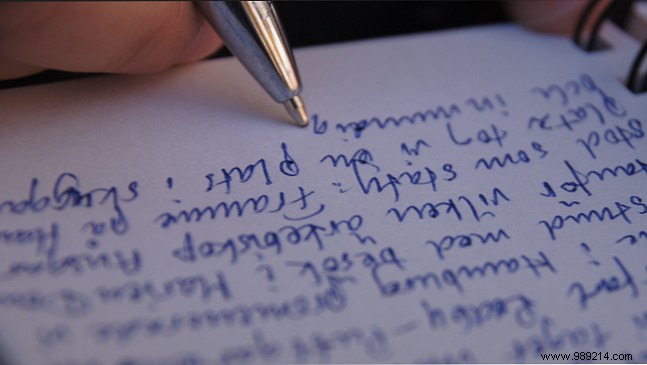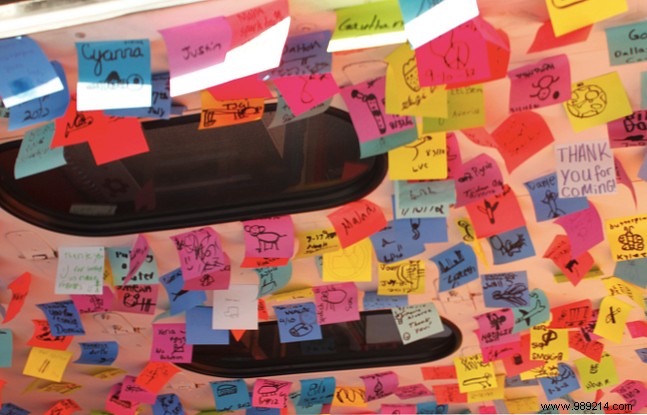The idea of going 100 percent paperless can seem like a dream, especially if you've been reading the golden promises of many of the top minimalism and productivity blogs The 10 Most Useful Productivity Blogs of 2017 The 10 Most Useful Productivity Blogs 2017 Few productivity blogs offer practical advice. Most tend to focus on self-improvement, feel-good, and motivational pieces. We've picked the best practical productivity blogs online today. Read more.
Ah, the joy of saying goodbye to that rack of ugly ring binders. Imagine the time you'll save by being able to retrieve an old utility bill with the swipe of a finger. And let's not forget the trees you'll save... The trees!
But as is always the case with these solutions, things are not that simple. We cannot simply ignore a medium we have relied on for millennia. There's a reason the paper has lasted so long. And there are plenty of reasons why we shouldn't completely give up (if we do).
We all know that the tactile experience of a paper book cannot be compared to looking at a glowing screen. But this is more than just sentimentality or the smell of a dusty book.
In The Basses:What the Internet is Doing to Our Brains , Nicholas Carr explains that “the shift from paper to screen doesn't just change the way we navigate a piece of writing. It also influences the degree of attention we pay to it and the depth of our immersion in it.”

Reading long writing on a screen leaves us disoriented. It's hard to imagine where we are in the text. We cannot easily turn a few pages to review something. We can't scribble in the margins either. Then there's the distraction of hyperlinks and Facebook notifications that take us away from what we're supposed to be doing:reading.
All of this naturally leads to less retention and recovery. How to Remember What You Read With Simple Tools How to Remember What You Read With Simple Tools Read More won't do you any good if you can't keep anything you read. Use these tips when it's hard to remember what you've read. Read more . It prevents us from developing the necessary neural connections for prolonged reading sessions. It leaves us chasing little bits of information, almost never reading more than a few paragraphs at a time. That's not to say that all digital reading is bad, but rather that there are still benefits to reading on paper that we ignore at our own risk.
As you try to go 100 percent paperless, you'll inevitably get to the point where you need to start digitizing all those old utility bills and newspaper clippings from 15 years ago.
Before you do this, stop!

As with anything, there is a point where going paperless has diminishing returns. Seriously, what's the chance they'll ever need to get that 2001 salary back?
The last 10 to 20 percent of things you “need” to digitize are rarely worth the effort and time it takes to scan, tag, and organize The best way to organize Evernote:Use tags The best way to organize Evernote:Use tags Is your Evernote a big mess? We show you a simple tweak that will help you organize your notes like never before. Read more . Just squeeze them into a box, store them in the attic, and forget about them until you need them (which you probably never will). The hours you'll save can be spent much more wisely.
In a Temple University study, the effects of print-based marketing were compared to digital marketing. The results showed that the printing material is more easily absorbed by the reader. It causes a more emotional reaction. It's easier to remember. It is more likely to provoke action.
The same seems to be true in a more personal setting. That's why wedding invitations are almost always sent by mail. That's why we're still thrilled to receive a handwritten letter or postcard. That's why we still enjoy flipping through physical photo albums. Physical things still have more gravity than digital things..

Yes, digital communication has become the norm, but this has caused a loss in emotional connection. That gives us plenty of opportunities to get back on paper when we want to make a bigger impact.
Instead of a Facebook message, a handwritten note might be better. Sending someone a print of a photo instead of a JPEG will send a stronger message.
For some, going paperless is another step in the direction of a healthier planet. But this is not necessarily true. Paper is one of the only truly sustainable products we have. Especially with more and more manufacturers joining certification schemes like FSC and PEFC to ensure paper production is as green as possible.

However, the tech industry and the cloud storage industry, in particular, rely heavily on mountaintop coal mining for electricity. This form of mining causes forests to revert to bedrock, causing irreversible damage to the environment. And then there is climate change, caused in part by the electricity generated by these fuels.
So if you think going digital is "green," think again.
Many people want to digitize everything because they think it will be safer in digital format. But in reality, digital files are much easier to copy, share, hack, and destroy than physical files.

Without a solid method for routinely backing up your digital files Best Backup Software for Windows Best Backup Software for Windows Your data is fragile – it only takes one small accident to lose it all. The more backups you make, the better. Here we introduce the best free backup software for Windows. Read More A decent backup system includes making multiple copies of your files and storing at least one of these offsite. Without this, a broken external hard drive could see you lose all of your photos A hacked Evernote account could see you lose all of your digital notes. A lost password could cause you to lose all your Dropbox or Google Drive files. Not to mention the risk of identity theft.
With paper, however, there is only one major risk:fire. It cannot be hacked, and it is difficult to access for copying. In many ways, paper is safer than digital (although it does break down gradually), especially if you invest in a fireproof safe for the really important stuff.
Going paperless, there will almost always be routine costs.
Free cloud storage often ends up costing you in the end, so we recommend looking for a good cloud storage provider early on. For extra backup and to store lots of photos, you'll also need to invest in some external hard drives. From time to time they will need an update to make sure they are still compatible with new operating systems etc.

You may even want to store your digital documents in an app like Evernote for easy tagging and categorization. If you want more than just the very basic features, you'll need to use Evernote Free vs. Evernote Free. Paid:Which Plan Is Right For You? Evernote Free vs. Paid:Which Plan Is Right For You? Should I upgrade from Evernote's Basic to its paid Plus or Premium plan? We show you who will benefit from the paid plan and when not to bother. Read More
Over a life without paper, these costs will add up.
As you can see, there are many reasons to go completely paperless is an ineffective goal. It is not particularly environmentally friendly. It can make important files less secure. Reading on a digital device is less rewarding and less effective than reading on paper. And there are routine costs involved.
Sure, go 50 percent paperless. Maybe even 80 percent. But that last 20 percent is rarely worth it.

For many tasks, paper is still the best tool for the job. That's why so many people still swear by journaling How to Start a Journaling Habit With 7 Simple Templates How to Start a Journaling Habit With 7 Simple Templates If you have a journaling template, has one big advantage:you don't have to. Find out what to write! Templates save time and also reduce startup friction. Read More That's why books are not die, and why the best way to scribble down notes and lists on the go is with a pen and paper.
So when you find yourself aiming to get rid of your paper life, keep this in mind. With every thing you digitize, ask yourself, “Is it really worth my time??” and “Could paper be the best medium for this document after all??”
What documents do you think we should refrain from digitizing? And are the benefits of going completely paperless actually benefits or curses in disguise?